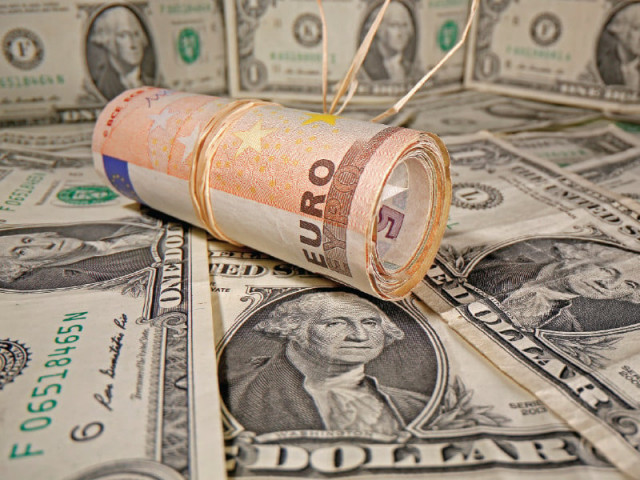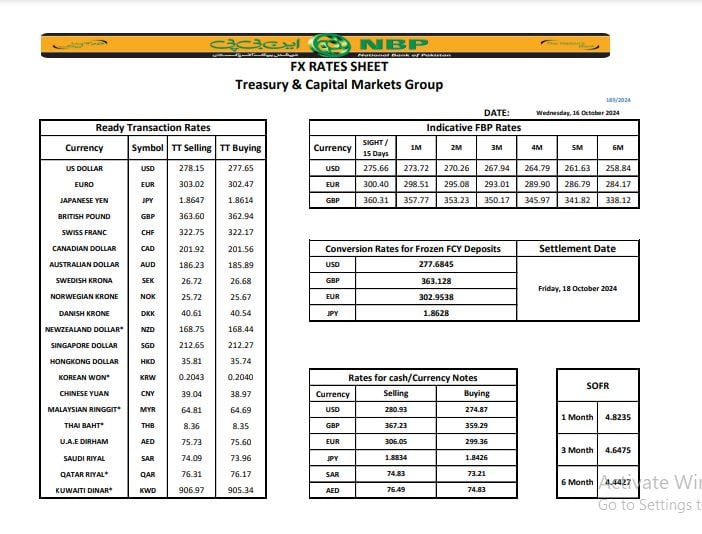USD Exchange Rate: Rupee weakens slightly
Pakistani rupee saw a slight dip, with the US dollar selling at Rs278.15.

The Pakistani rupee has experienced a slight decline against major foreign currencies, with the US dollar (USD) selling at Rs278.15 and buying at Rs277.65.
Meanwhile, the Euro (EUR) was selling at Rs303.02 and buying at Rs302.47,
British pounds (GBP), the rate stood at Rs363.60 for selling and Rs362.94 for buying.
The Canadian dollar (CAD) was available for Rs201.92 selling and Rs201.56 buying.
While the Australian dollar (AUD) was selling for Rs186.23 and buying for Rs185.89.
In the Gulf region, the UAE dirham (AED) was selling at Rs75.73 and buying at Rs75.60, and the Saudi riyal (SAR) was trading at Rs74.09 for selling and Rs73.96 for buying.
Similarly, Qatari riyal (QAR) with a selling rate of Rs76.31 and a buying rate of Rs76.17.
Other notable currency, the Swiss franc (CHF) was selling for Rs322.75 and buying for Rs322.17.
Lastly, the Kuwaiti dinar (KWD), known for its high value, stood at Rs906.97 for selling and Rs905.34 for buying, offering one of the highest exchange rates among global currencies.

Photo: NBP Exchange Company Limited
Earlier, A tax advisory firm, Tola Associates, estimated that banks may need to pay Rs197 billion in extra taxes in 2025, based on their advance-to-deposit ratio (ADR).
The additional tax was introduced in 2022 to encourage banks to lend to industries rather than the government.
However, many banks are lobbying for exemptions, as the current tax rates for government lending range between 49% and 55% depending on their ADR.
In 2024, banks paid Rs612 billion in taxes, benefiting from some exemptions. The extra Rs197 billion liability arises if banks do not meet the ADR threshold, but they can reduce this by increasing private sector lending before the end of the year.
Banks have been accused of "round-tripping" to manipulate their lending figures, a practice criticized by former state minister Ashfaq Tola.
Despite their efforts to gain tax relief, the government, under an IMF loan deal, is unable to offer such exemptions.
The lobbying by banks, including major commercial institutions, continues, and failure to meet the ADR requirements could significantly impact Pakistan's revenue collection.
Some banks could see significant relief if the tax is exempted, but the overall concern is that preferential treatment could exacerbate fiscal challenges.


















COMMENTS
Comments are moderated and generally will be posted if they are on-topic and not abusive.
For more information, please see our Comments FAQ